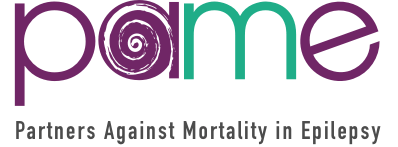Effect of counselling of parents of children with epilepsy focusing on sudden unexpected death in epilepsy
Objectives
To characterize the effects of sudden unexpected death in epilepsy (SUDEP) counselling on epilepsy-related childcare behaviour and practices, and emotional distress, measured by the Depression, Anxiety and Stress scale-21 (DASS-21), among parents of children with epilepsy (CWE), and to obtain feedback about SUDEP counselling.
Methods
We conducted a single-arm, pre- and post-intervention study design. We enrolled 120 parents of CWE. At enrolment, we collected clinical and demographic data, assessed 18 epilepsy-related childcare and behaviour and practices and the DASS-21 score. Parents underwent a three-phase counselling, comprising SUDEP information via written material, followed by an informative video, and then a detailed face-to-face counselling session with treating clinicians. Changes in epilepsy-related childcare behaviour and practices, and DASS-21 scores were reassessed at one month. Qualitative feedback was obtained about SUDEP counselling.
Results
At one month, 84.2 % of parents reported a change in >2 epilepsy-related childcare behaviour and practices. Significant improvement compared to baseline was observed in reported administration of anti-seizure medications at fixed time (100 % versus 57.5 %; p < 0.0001), regular exercise (87.5 % versus 60 %; p < 0.0001), supervision of activity as advised (56.7–39.2 %; p = 0.0096), having a seizure action plan (97.5 % versus 20 %; p < 0.0001), rescue medications (95 % versus 25.8 %; p < 0.0001), providing information of child’s epilepsy to schools (100 % versus 62 %; p < 0.0001), providing an emergency contact number in schools (100 % versus 58 %; p < 0.0001), and a seizure action plan in their child’s school (54 % versus 8 %; p < 0.0001).
There was no significant change in DASS-21 scores at one month. Parents expressed a preference for face-to-face interaction, in combination with other audiovisual modes, for SUDEP counselling, and being counselled when they were comfortable with their child’s diagnosis of epilepsy.
Significance
SUDEP disclosure among Indian parents of CWE was associated with significant improvement in self-reported epilepsy-related childcare behaviour and practices, without increase in depression, stress or anxiety.
Full article available from Epilepsy Research

